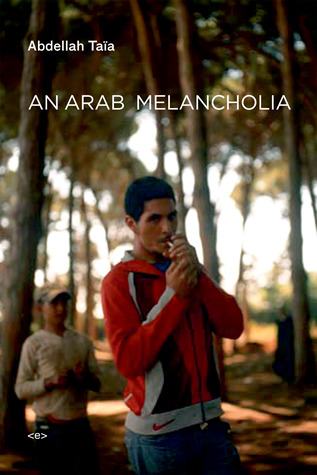Acclaimed as the first openly homosexual author from Morocco, Abdellah Taïa has spent the better part of a decade exploring the difficult topic of queerness in the Arab world. Mimicking the work of other Moroccan expatriates like Abdelkebir Khatibi and Tahar Ben Jelloun, Taïa has also exposed the contentious and violent ideological dialogue between the postmodern West and postcolonial North Africa. Implicit in much of his prose—a medley of epistles, diary entries, cinematic and musical allusions, and medieval poetic citations—is the promise of writing as a means of speaking homosexual love from within and outside of the Arabic language and the law of Islam. The fourth entry in Taïa’s autobiographical cycle, An Arab Melancholia is a slender bildungsroman that marries transgressive sexual confessions to laconic spiritual poetry, and is an intriguing meditation on whether silenced desires can find liberation through more-mystical forms of expression.
Taïa’s earliest recollections of sexual love begin with the threat of an existential silence: his own death. Lured into a neighbor’s home by a local gang of delinquents, the young narrator is targeted as the object of a gang rape, only to be saved by the local mosque’s call to prayer. The boys’ emasculating taunts of “Leïla,” however, inflame his imagination, evoking the medieval Arab yarn of the shepherd’s daughter whose beauty drives the local poet, Majnoun, mad with desire. The scene is further complicated by Abdellah’s love for the gang’s leader, Ali, whose sexual violence he both detests and silently covets. Determined to openly speak of himself as gay, Abdellah prepares a dramatic monologue on the street before Ali’s home, but his proclamation is cut short when he inadvertently touches a live electric pole.
As Taïa tells it, this dizzying fall into and out of sudden death radically transforms his desire to speak—or rather to speak out—and with this conversion comes a religious identification with his own homosexuality. Abdellah is no longer just queer: he is a now a poet of love, a seer possessed by jinn, a resurrected body. “My life took a whole new direction,” he recalls. “Something new, something interior and secret.” Throughout the remaining narrative, which takes elliptical leaps of more than twenty years as the maturing author travels between Morocco, Egypt, and Paris and takes lovers from East and West, Abdellah finds that he is able to express his new identity by writing exclusively in French rather than Arabic.
...You have reached your article limit
Sign up for a digital subscription and continue reading all new issues, plus our entire archives, for just $1.50/month.
Already a subscriber? Sign in





